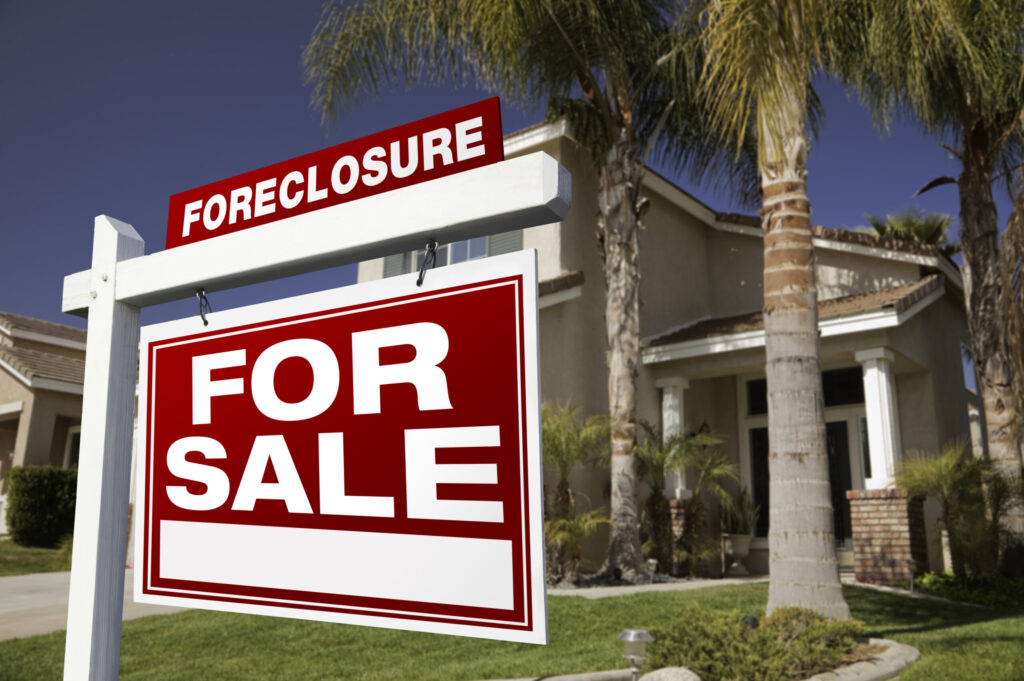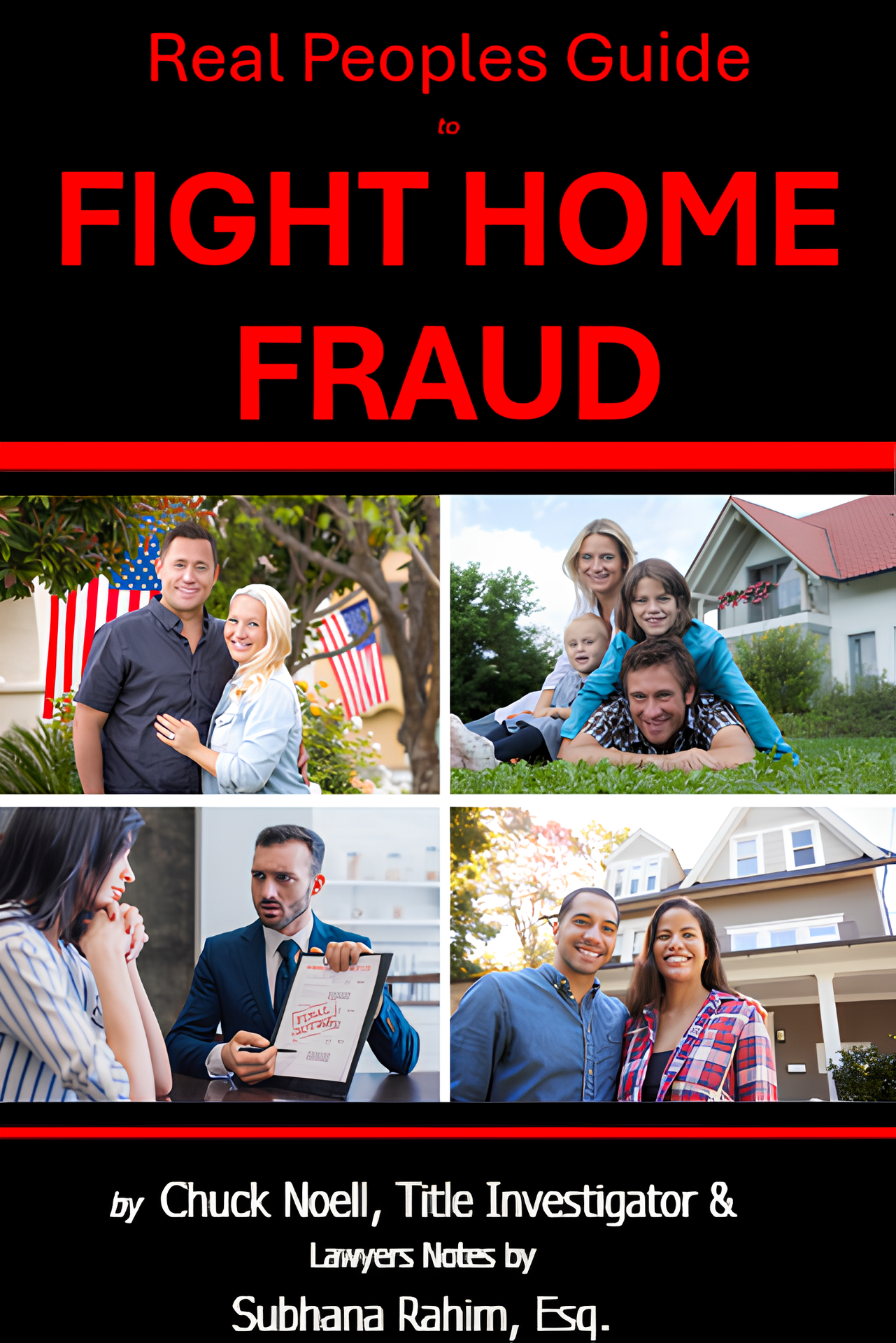
Protecting Yourself as a Home Buyer

Home Ownership is the American Dream

But you can be Cheated, and it can be Stolen from You

This is the Real Peoples Guide to Protecting Your Dream
Title Fraud in Buying a Home
Title fraud is a serious issue in real estate transactions and can result in significant financial losses for home buyers. Here are several ways that home buyers can be cheated through title fraud:
Forged Documents: The most direct form of title fraud involves the use of forged documents where a scammer alters ownership documents or forges the seller’s signature to illegally transfer property ownership. The buyer may believe they are purchasing from the rightful owner, only to discover that the title is invalid.
Impersonation of the True Owner: Scammers might impersonate the rightful property owner using stolen personal information. They can create convincing fake IDs and other documents to pose as the seller, deceive buyers and real estate professionals, and complete property transactions fraudulently.
Illegal Flipping: This occurs when a property is purchased with the intent to re-sell (flip) it quickly after making significant price inflation through deceitful means, such as using falsified appraisals. Buyers might end up paying much more than the property is actually worth based on these manipulated documents.
Existing Liens or Encumbrances: In some cases, fraudsters may sell a property without disclosing existing liens or other encumbrances on the title. The new homeowner is then left responsible for these debts, which can be substantial and might lead to financial strain or loss of the property.
Fake Title Insurance: Scammers might offer fake title insurance to buyers. They collect premiums without intending to provide any real coverage, leaving buyers unprotected against potential title defects.
Hidden Heirs: In this scheme, a seller might fraudulently conceal the existence of other heirs who have legitimate claims to the property. After the sale, these hidden heirs can emerge and challenge the buyer’s ownership, leading to legal disputes and potential loss of the property.
Key Steps to Protect Yourself
- Due Diligence: Always conduct thorough due diligence, even when dealing with family members or trusted individuals.
- Legal Advice: Obtain independent legal advice before entering into any agreements that involve transferring property rights.
- Title Insurance: Consider purchasing title insurance to protect against potential title disputes.
- Control of Process: Maintain control over the selling process, including the choice of trustees, attorneys, and title companies.
- Verification: Verify all documents and understand the implications of any legal documents you sign.
- Awareness of Fraud: Be aware of the various forms of real estate fraud and the tactics used by fraudsters.
Mortgage Fraud in Buying a Home
Mortgage fraud can take many forms, and it’s essential for home buyers to be vigilant to avoid being cheated. Here are some common ways that home buyers can fall victim to mortgage fraud:
Inflated Appraisals: This type of fraud involves the artificial inflation of a property’s value. Dishonest appraisers may work in concert with sellers or brokers to set a property’s value much higher than the market dictates, misleading the buyer about the true value and potentially leading to a larger mortgage and financial loss.
Loan Origination Fraud: This can occur when a mortgage broker or lender falsifies information during the loan application process to approve the loan. This may include overstating the buyer’s income or assets, or providing misleading information about the property. The buyer may end up with a mortgage that is not suitable for their financial situation, potentially leading to financial distress or default.
Identity Theft: A fraudster may use a stolen identity to secure a mortgage loan. The true identity of the person whose credit is used is unknown until the fraud is discovered, often leaving the victim with significant damage to their credit score and legal problems to sort out.
Straw Buyer Schemes: In this scam, a buyer, often unknowingly, is used as a “straw buyer” to purchase a property. The scam artist convinces someone with good credit to apply for a mortgage under the guise that this will be an investment or that the actual buyer cannot secure financing due to various reasons. Once the property is purchased, the scam artist can run off with the money, leaving the mortgage in the straw buyer’s name.
Occupancy Fraud: This involves a buyer falsely claiming that they will occupy the home as a primary residence to obtain favorable mortgage terms. Lenders often offer better rates for owner-occupied homes. If it’s discovered that the buyer does not intend to live in the property, they may face legal actions or financial penalties.
Foreclosure Rescue and Loan Modification Scams: Some fraudulent schemes target buyers who are struggling with their mortgage payments. Scammers may offer to renegotiate the terms of a loan or to save the home from foreclosure for an upfront fee and then not deliver any help, essentially cheating the homeowner out of money when they are most vulnerable.

Preventing real estate fraud safeguards your financial investment and gains.

Protecting yourself from boosts your confidence, and can inspire loved ones to protect their home ownership.

Discovering and Correcting home fraud ensures you won’t miss out on your home ownership benefits, value and profits.
Homebuyer's Dream Ruined by Title Fraud
Sarah Johnson had been saving for years to buy her dream home. Finally, she found a charming house that seemed perfect in every way: great location, excellent condition, and surprisingly within her budget. Little did she know, her dream was about to turn into a devastating financial and emotional nightmare.
The process started smoothly. Sarah was contacted by a person claiming to be a real estate agent for the property. This agent was articulate and provided Sarah with all the necessary documentation, including what appeared to be a legitimate title deed.
Thrilled, Sarah proceeded with the transaction, transferring her down payment to a bank account specified by the agent at the “closing”.
The truth came crashing down when Sarah arrived to move in, only to be greeted by the actual homeowners, who were shocked to find someone claiming to own their house. It quickly became clear that Sarah had fallen victim to a sophisticated title fraud scheme. The title deed was a forgery, the real estate listing was fake, and the agent was a con artist who had vanished with Sarah’s life savings.
Devastated, Sarah contacted the police, but the chances of recovering her funds are slim. The emotional toll was immense, compounded by costly legal fees as Sarah sought justice—a process fraught with frustration and dead ends.
Sarah’s ordeal highlights a critical point: in the world of real estate, thorough due diligence is not just advisable—it is essential.

Real Estate Fraud, including mortgage fraud and title fraud, pose serious dangers to buyers and sellers, resulting in devastating financial and emotional consequences.
For new home buyers and existing homeowners , “The Real People’s Guide to Fighting Real Estate Fraud” is an invaluable resource.
Six Key Benefits for You
- Strategies for Due Diligence: The book provides practical advice on conducting due diligence, helping buyers verify the legitimacy of properties, sellers, and involved professionals.
- Knowledge of Legal Protections: It offers insights into legal rights and protections available to home buyers, empowering them to make informed decisions and seek recourse if needed.
- Preparation for Negotiations: Readers learn negotiation tactics and how to approach contracts, ensuring they can advocate for their best interests in transactions.
- Guidance on Choosing Trusted Professionals: The guide advises on selecting reputable real estate agents, lenders, and title companies, reducing the risk of falling prey to scams.
- Empowerment Through Education: By demystifying complex real estate processes and terminology, the book empowers buyers with the confidence to navigate the home buying process more securely and successfully.
- Enhanced Awareness of Fraud Risks: Readers gain a thorough understanding of the various types of real estate fraud, including mortgage and title fraud, enabling them to identify red flags in transactions.

Financial loss stemming from mortgage fraud can be substantial.

Don’t fall prey to the loss and embarrasment of being decieved by mortgage or title fraud.

You could find yourself losing your dream property or suffering great setbacks financially due to mortgage or title fraud.

